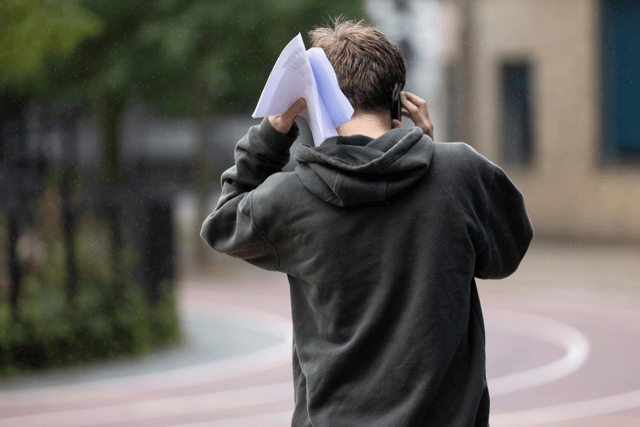GCSE results day 2022: When is it, how to find your results in Bristol, how is it marked and how to appeal
and live on Freeview channel 276
It marks the first time in over two years where GCSE students will receive official results for exams they sat in both May and June.
Advertisement
Hide AdAdvertisement
Hide AdFor most, it is a day of extremes - sleepless nights meet fuzzy mornings, with a dash of adrenaline.
BristolWorld is here to alleviate the stress and aid you in preparing for GCSE results day 2022; from picking up your results to appealing a grade, we’ve got you covered.
When is GCSE results day in Bristol?
For students across Bristol, GCSE results day 2022 will fall on the final Thursday of the month - Thursday, August 25.
What time can I collect my GCSE results in Bristol?
According to exam boards, teachers can administer results to the students who have completed exams in May or June from 8:00am.
Advertisement
Hide AdAdvertisement
Hide AdUnlike A-Levels, where students can access their grades digitally, exam boards will release GCSE results to the relevant institutions first.
Where do I get my GCSE results?
Students will typically receive their results in person at their relevant school, college, or study centre. It is recommended that you know what time your institution opens as some schools will administer results from 8:00am, whereas others wait until around 10:00am.
If you’re unavailable to collect your results in person - due to a family emergency, holiday etc - you should contact your school in advance so they can arrange for your results to be collected on an alternative date, picked up by a family member or friend or sent to you electronically.
How does the GCSE grading system work?


Since 2017, GCSE results are graded in numerical form. The top end of the grading scale sees 9,8 and 7 equivalent to an A* or A whereas the bottom 3 numbers equivalent to a D or lower.
- 9 = High A* grade
- 8 = Lower A* or high A
- 7 = Lower A grade
- 6 = High B grade
- 5 = Lower B or high C
- 4 = Lower C grade
- 3 = D or high E
- 2 = Lower E or high F
- 1 = Lower F or G
- U = U remains the same
How do I know if I’ve passed a GCSE result?
Advertisement
Hide AdAdvertisement
Hide AdPrior to the numerical system, a C grade was considered a standard pass. Now, there is more than one result that is labelled a pass for GCSE students.
Instead, students will be judged upon whether they achieve a grade 4 and above, with a grade 4 being called a standard pass.
Under regulations introduced in 2015/16, students who receive a standard grade 4, will not have to resit an exam. Alternatively, a grade 5 is referred to as a strong pass and schools will be judged more positively the higher percentage of students achieve this.
How are GCSE results marked in 2022?
During the global pandemic, specialist measures were taken to ensure pupils received GCSE results despite not being able to sit exams
Advertisement
Hide AdAdvertisement
Hide AdIn 2022, there has been a return to the traditional marking system. Examiners primarily mark GCSE papers, which are then cross-referenced and quality-checked by an exam board.
There are four GCSE exam boards - AQA, OCR, Pearson and WJEC Eduqas. Each board will finalise GCSE results according to their relevant grade boundaries.
Most exam boards have stated that their approach is to be more generous this year then when students last sat exams in 2019. This is to account for a pandemic-related interruption for pupils’ studies.
What if I don’t agree with my GCSE results?


Students are entitled to appeal or request a remark on any one of their GCSE results.
Advertisement
Hide AdAdvertisement
Hide AdIf you happen to question the published result of a particular subject, it is recommended that you speak directly to the subject leader, who can either get in touch with the relevant exam board or provide more information about the process.
If you are a private candidate you can contact the exam board directly. Each board will have a slightly different process, which we will link to below.
For more information about how to appeal visit the AQA website.
For more information about how to appeal visit the OCR website.
For more information about how to appeal visit the Pearson website.
For more information about how to appeal, visit the WJEC Eduqas website.
Comment Guidelines
National World encourages reader discussion on our stories. User feedback, insights and back-and-forth exchanges add a rich layer of context to reporting. Please review our Community Guidelines before commenting.
